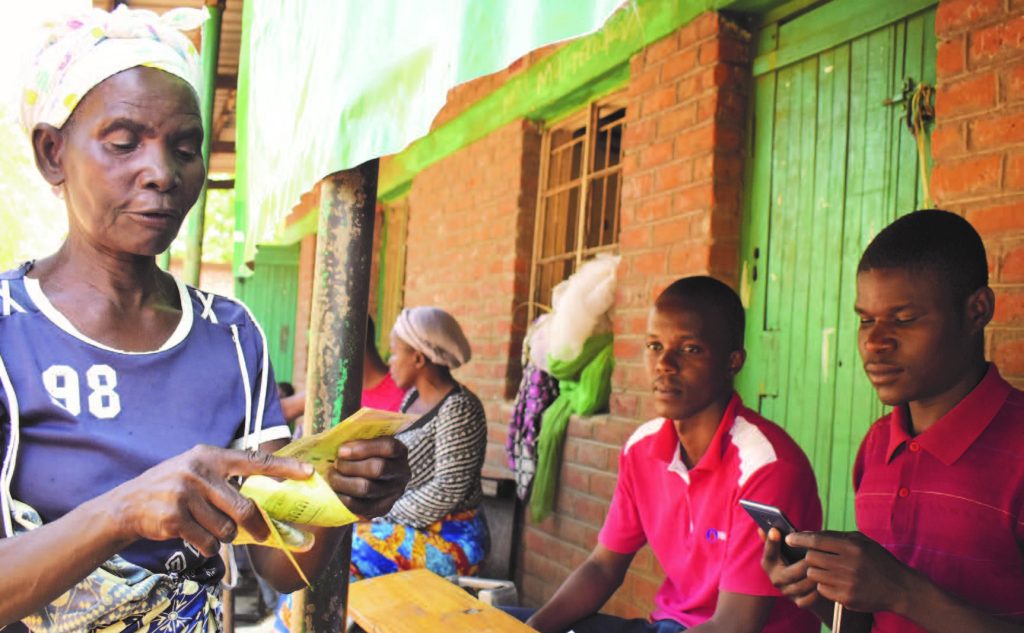Cyclone survivors’ grief as aid wanes
In March, Cyclone Freddy dumped floods across Malawi’s Southern Region, disrupting the livelihoods of nearly 2.2 million people.
Marita Chingamuka of Masanduko Village, Traditional Authority Ngwelero in Chikwawa District, fled her crumbling house and spent a night in a mango tree before taking refuge in an overcrowded shelter for displaced people. The mother of seven also lost her three goats, 30 chickens as well as maturing maize, beans and potatoes.

She is among 500 survivors of the country’s deadliest cyclone who received K50 000 each from Oxfam in Malawi with support from its sister organisations in the US and Canada.
“Oxfam is disbursing the emergency cash transfers to lessen the impact of Cyclone Freddy. The idea was conceived to help the 500 families meet their immediate needs,” says Andrew Mkandawire, from Oxfam Malawi.
Chingamuka, 50, pledged to use part of her money to buy food and the rest to recapitalise her fish business so as to multiply the earnings for a swift replanting and relocation from the flood-prone valley.
“Life hasn’t been easy since disasters have become more repeated and devastating. I have become poorer as my village has been greatly affected by climate change. When the rainy season doesn’t bring dry spells, we get floods that destroy our homes, crops, livestock and other valuable assets,” she states.
Chingamuka moved slightly upland in 2017 in a desperate escape from frequent flooding. Her home was wrecked by floods induced by El Nino in 2015, then came Cyclone Idai in March 2019 and Cyclone Ana in January 2022.
Despite her shift from the vast lowlands, the new house was destroyed by Cyclone Freddy this year.
Now she survives on “slavish piecework” in her neighbours’ fields.
“It’s time to move further upland,” she says. “Sticking to the fertile wetland only makes us poorer as we keep losing what we have laboured for,” she states.
However, Chingamuka says she cannot afford a safer place and the cost of building back better.
As humanitarian aid keeps waning, Oxfam in southern Africa reports that worsening hunger and poverty are forcing some of the survivors of Cyclone Freddy in Malawi and Mozambique to sell their land and withdraw children from school in a desperate bid to lessen their suffering.
This, coupled with a lack of seed and fertilisers, has slowed their recovery, especially for those determined to replant to take advantage of the abundant moisture and fertile alluvial soils left by floods to beat deepening hunger and poverty.
Nothing to grow
In a statement marking 100 days after Cyclone Freddy struck Malawi and Mozambique, Oxfam in Southern Africa programme director Amjad Ali said: “Torrential floods washed away everything, leaving farmers with nothing to harvest.
“Families told us they have nothing to grow ahead of the winter as they lost their seeds, harvest and agricultural tools, forcing them to make desperate decisions to survive. This has hugely contributed to food insecurity in the affected areas and the situation will only get worse if people are not assisted to grow food this winter.”
Maize harvests, Malawi’s staple, have dropped by nearly 30 percent, forcing food prices to more than double, according to the Ministry of Agriculture.
The world’s longest-lasting cyclone struck at the peak of the lean season when 3.8 million Malawians required food aid to survive debilitating hunger, reports the Malawi Vulnerability Assessment Committee.
In the widely devastated Phalombe District, Michenga Pensulo, 56, said: “I have sold my two acres for K150 000 because I need to buy food and other household needs.
“It was a painful decision because I sold it cheaply, but I can’t stand to see my family starve.”
The deteriorating situation is silently forcing underage girls to quit school for marriage and transactional sex, raising the risk of teen pregnancy, maternal deaths and sexually transmitted infections, including HIV.
“In times like these, evidence has shown that women, girls and children suffer the most,” says Lingalireni Mihowa, Oxfam in Southern Africa gender justice lead. “They often face extraordinary difficulties to secure food, and yet, too often they eat the least and last, and girls are most vulnerable. Some may have to drop out of school so that savings from school fees can support purchases of food for families to eat.”
Climate justice
Oxfam states that Cyclone Freddy is another glaring reminder of how poor people, the least responsible for climate change, continue to pay the steepest price for global warming fuelled by emissions from wealthy nations. It petitions rich polluting nations to honour their $100 billion climate financing pledges to support poor countries hit the hardest.
“Unless developing partners immediately meet the $253.9 million UN appeal, currently 22 percent funded, to help people rebuild their lives, millions more people will have nothing to eat,” said Amjad.





